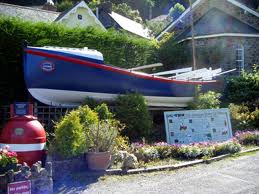 |
| The Mug House, Claines, Worcester |
It is just a moment's walk through the lych gate of St John the Baptist Church, to the door of the Mug! In fact it is said a ley line runs from the pub to the church and it is suggested a tunnel once existed between the church and the pub cellar. One section of the 15th Century, timber framed, wattle and daub construction is visible, at the front of the building.
Originally the Mug was the church brew house, and its history goes back to the Plantagenets and the House of Lancaster.
"Brew houses were at one time an essential form of income for the church, for with some 75 feast days to celebrate, it meant money in the coffers of the church."
"Our poor are provided for, the highways repaired, riot we know none, gamesters we know none, drunkeness none."
By the time of the early censuses, the early innkeepers were women: in 1841 Ann Mansill aged 60 and living with her, Henry Mansill, 40, possibly her son, who was a merchant. By 1851 Ann is still there, listed as a victualler, now in her early 70s and has the support of Sarah Russell from Hartlebury who was a house servant.
Around 1855 Sarah Williams (29) took over as victualler and in 1861 she was living there with her brother Elijah R Williams, who was a clerk at the Post Office. Earlier Elijah had lived at home with his parents James and Elizabeth who were the schoolmaster and schoolmistress at the National School House, Claines.
Then men took over: firstly Joseph Knott in 1871, he is listed as Innkeeper aged 62, from Astley, Worcestershire, and his wife Mary, 54, from Watford in Hertfordshire, but by 1879 and through to the 1881 census, Frank Evans (29) and his wife Mary Jane (30) ran the Mug and lived there with their baby Amy.
By the 1891 census, Charles Daniels (28) and his wife Florence (25) had taken over. Interestingly Charles who had been born in Bourton on the Water, had previously worked as a footman at Brockhampton Park, good training for a licensed victualler! Florence also had a good background, as her father John and mother Ann were Innkeepers at the Fox and Hounds Beer House, at Stogursey, a small village in Somerset, near Bridgwater.
There was a Somerset link too, in 1901 when John Minton (40) from Hereford and his wife Bessie (36) from Yeovil in Somerset took over, but by 1905 Albert Beck was in charge and then in 1911 George Hobbs.
George and his wife Mary had lived in Coachmaris House, in Minto, Roxburghshire. Mary herself was from Kinlock in Perthshire, though George was originally from St Johns, Worcester. In 1901 they had two sons George and Cameron and father George was a coachman. Being in service, was probably good training to run a pub! In 1911, son George (24) was living at the Mug and working as an Engine Fitter, whilst George was listed as the Licensed Vitualler aged 53 and Mary his wife was 49.
In 1947 renovations were taking place at the Mug and within a wall, the silver head of a medieval bishop's crook, a crosier, was discovered. It is thought it had once belonged to the Bishop of Worcester. It is now used every year by the Claines Boy Bishop, but it is still a mystery as to why it was secreted away!
In the 1950s the vicar told the publican of the Mug:
"You fill my church and I'll fill your pub" !!
And today, the older children of the Church meet at the Mug, every Sunday, they are "God's Own Pub Club"!!
Thanks to:
Geoff Sansome and Claines Friends
http://www.clainesfriends.org.uk/MugHouse.html
To contact The Mug - call Judy or Russell on 01905 456649




